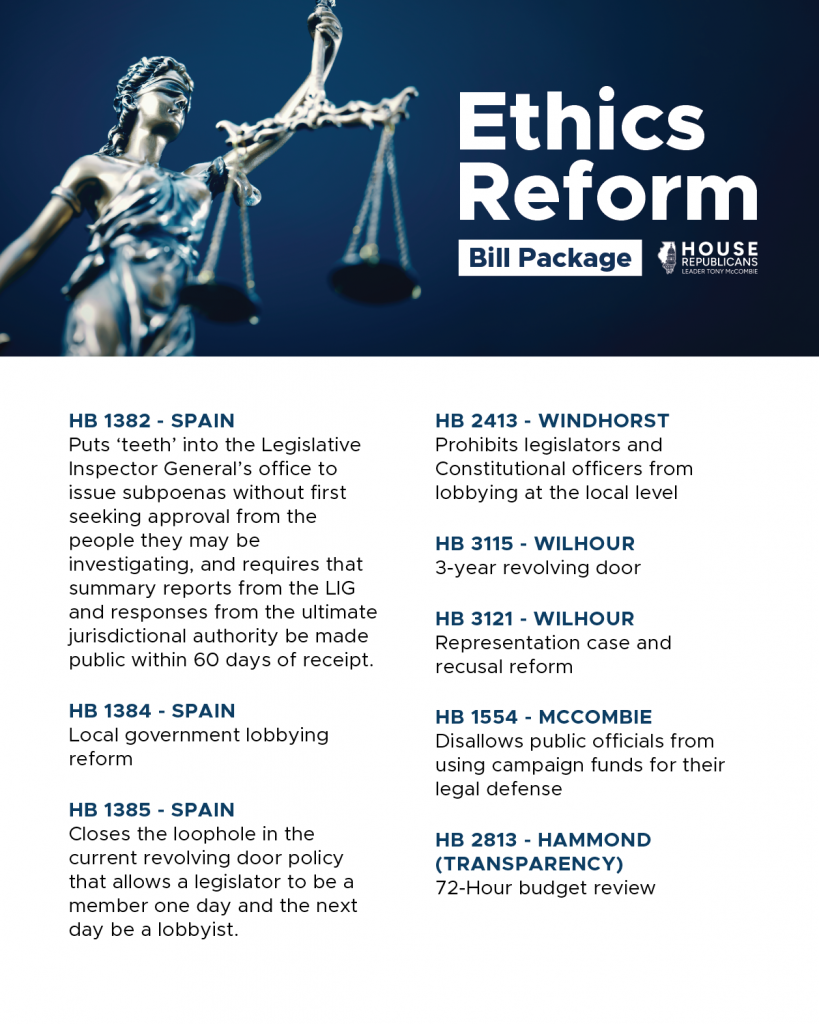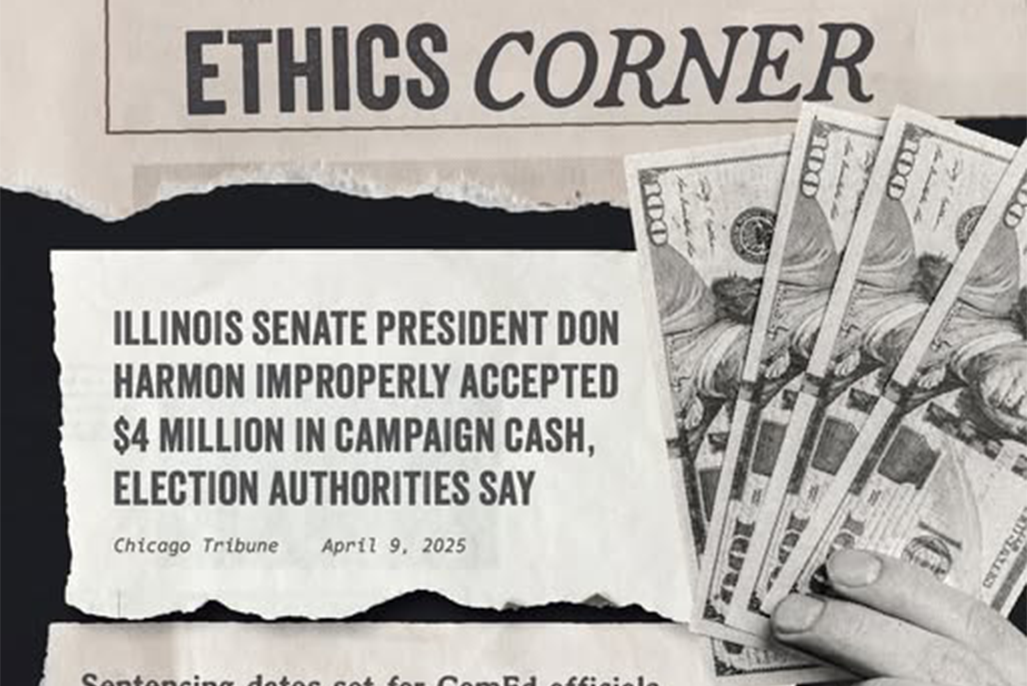ETHICS REFORM
House Republicans Call for Anti-Corruption Package. Last week, House Republican lawmakers presented their legislative proposals to once again bring forward an opportunity for ethics reform in the Illinois statehouse. The proposals are an attempt to restore public faith in government and root out commonplace corruption under the dome. State Representatives Patrick Windhorst, Dave Severin, and David Friess discussed the unfortunate record of public corruption guilty verdicts impacting the Illinois General Assembly, including the former Speaker of the Illinois House Michael Madigan.
In response to the recent press conference, House Minority Leader Tony McCombie released the following statement:
“Illinoisans are sick and tired of corruption running rampant in their state government. While Democrats protect the status quo, House Republicans are fighting to restore public trust and accountability. Ethics reform isn’t optional, it’s essential. The people of Illinois deserve leaders who serve them, not self-serving politicians who manipulate the system for personal gain. We will not stop pushing for real reforms to clean up this broken system!”
WATCH: Multiple bills addressing ethics reform fail to pass in Illinois
The ethics reform legislation House Republicans are backing includes the following:
- HB 1382 – Puts ‘teeth’ into the Legislative Inspector General’s office to issue subpoenas without first seeking approval from the people they may be investigating.
- HB 1384 – Addresses local government lobbying reform.
- HB 1385 – Closes the loophole in the current revolving door policy that allows a legislator to be a member one day and the next day be a lobbyist.
- HB 3115 – 3-year revolving door lobbying ban for members of the General Assembly.
- HB 3121 – Implements representation case and recusal reform.
- HB 1554 – Bans public officials from using campaign funds for their own legal defense.
- HB 2813 – Requires a 72-Hour budget review before a vote on the budget

According to Illinois Policy, Institute experts found no other state had laws as extreme as Illinois that allow the House speaker to wield unparalleled power – laws that are still in place.
Necessary ethics reforms include:
- End the revolving door of lawmaker to lobbyist. Prohibit lawmakers from acting as lobbyists while they’re in office and establish a two-year limit between retiring as lawmaker and becoming lobbyist.
- Require better financial disclosure and voting recusal for conflicts of interest. Mandate lawmakers to provide detailed statements of economic interests and to recuse themselves from voting in the case of a conflict of interest, with real penalties for violating this rule.
- Empower the legislative inspector general. Allow the office to serve as a watchdog able to issue subpoenas on its own initiative and publish findings of wrongdoing.
- Enact true fair maps. Adopt a redistricting process that places map-making power with an independent redistricting commission and removes it from the hands of lawmakers who stand to benefit from drawing their own districts in their favor.
- Reform the House Rules. Right-size the speaker’s legislative power so one political office does not have the power in the General Assembly to determine when or even whether a bill is called for a vote.
